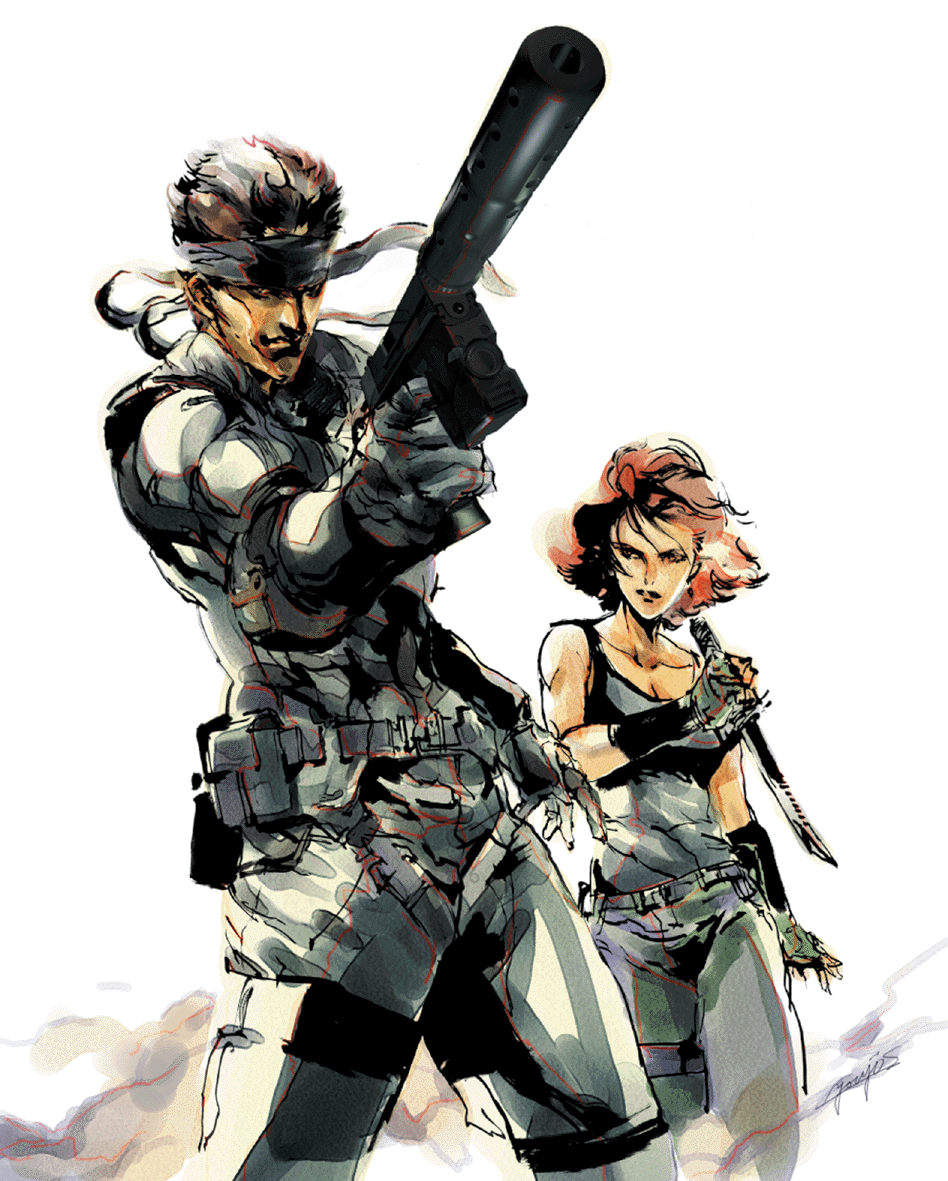GAME misses Mass Effect 3 launch as supplier becomes cautious
UK-based GAME has confirmed it will not be stocking the new role-playing game Mass Effect 3 when it launches next week after failing to agree to credit terms with producer Electronic Arts (EA). This has led to further speculation as to the future of the troubled retailer which also recently failed to stock Wii RPG The Last Story, Tekken 3DS and Ubisoft’s PlayStation Vita launch line-up.
The entertainment retailer is in the process of conducting a strategic review of its business after like-for-like sales slumped 15.2% in the eight weeks to 7 January 2012. The company issued a statement on its website saying: “The high street is having a tough time at the moment because people have less money to spend. We’re doing as much as we can to give our customers the widest possible range during this time, but as flagged before, we need our partners’ help in order to do this. We want to be in a position where we’re selling as much of their products as we possibly can. We need their help to do this and that’s what we’re working on at the moment.”
A spokesman for EA told The Guardian that GAME’s challenges with several of its suppliers was “regrettable” but pointed out that Mass Market 3 would be widely available elsewhere.
Fonte: Planet Retail
Quando la GD diventa piccola
3 03 2012Commenti : Leave a Comment »
Categorie : videogiochi
Viva l’indipendenza, Viva FUEL OVERDOSE
25 02 2012Sarà che quando sento parlare di sviluppatori indipendenti inizio ad emozionarmi come un bambino, quest’oggi preferisco sottrarre un po’ di spazio ai sottocosto ed ai paladini del day-one braker per inoltrarvi questo simpatico press kit oltre ad un paio di informazioni su I-FRIQIYA ed il loro imminente FUEL OVERDOSE, gioco in digital delivery per PC e PS3.

TOKYO (February 24th, 2012), I-Friqiya is today proud and happy to announce the upcoming release of its first game, Fuel Overdose, on Playstation3 (SEN/PSN) and PC (digital distribution). In development for 18 months the game is expected to debut on PlaystationNetwork by the spring of 2012.
What is Fuel Overdose?
Fans of action racing games for ages, we have played a lot of them over the last 15 years and we started our journey wanting to bring back a certain idea of the genre but also to propose something completely new and fresh. We focused our efforts on trying to provide innovative and fun action/combat game mechanics and bring in a tactical touch to the genre.
Put simply, we like to think of Fuel Overdose as a “Tactical- Action-Racing” game:
Action: From the large array of upgradable weapons one can expect for such a game, Fuel Overdose also features innovative and fun weapons and game mechanics such as a grapple that can be used both offensively and defensively, bomb detonators along the road, and a whole fighting system that offers unique skills moves and attacks to each character of the game.
Tactical: With Fuel Overdose, the choices made before and during the race have a real impact on your chances of success. The game leaves no room for luck and features a resource management system for the vehicles and weaponry, a super/ultra attack gauge inherited from the versus fighting genre as well as auction events than can bring a decisive edge to win races.
Racing: Fuel Overdose is not a combat-arena game, it is, as its core, a racing game that requires driving skills and that allows and values different racing styles and a diverse garage of vehicles, themselves all customizable to improve their driving and performance.
Who is I-Friqiya?
Created in 2010 I-Friqiya was born from the desire to develop independent games for the digital market.
Having all worked in large video game companies and big studios, we believed that a small and focused development team could bring something more to the table, namely a very focused production and an editorial line that could be held without compromise or concessions.
The project and studio developed around a multicultural team of European and Japanese talents:
Jérôme took on the tasks of game design, level design, programming, and also crafted the full scenario and universe of the game.
Ryo is the graphic design and artist behind all the graphics and animations in the game, from tracks to vehicles and all the way down to the HUD.
Hideyuki is the second artist on the game and he specifically focused his time and talent on all the character designs than can be seen in the game.
Skander and Aroun are both co-founders of I-Friqiya and are the producers of Fuel Overdose.
SCREENSHOTS
Commenti : Leave a Comment »
Tag: i-friqiya, press kit, videogames, videogiochi
Categorie : videogiochi
Make it a Blockbuster Night
24 02 2012BLOCKBUSTER to close 500 stores
24 February 2012US-based Blockbuster has announced its results for the year to 31 December 2011, confirming it plans to close 500 underperforming rental stores during the first half of 2012. This number accounts for approximately one-third of the company’s US store portfolio.
Blockbuster’s new parent company Dish Network reported an 11% increase in net sales for its full year 2011 to USD14.05 billion. Consolidated from 26 April, Blockbuster contributed USD975 million in revenue and USD4 million in net income during the period. The company ended the year with USD196.8 million in inventory.
Dish Network said that the store closures would have little impact on Blockbuster’s business as they related to outlets with favourable termination rights. The company said it would continue to view Blockbuster as a separate business and evaluate its performance going forward. Dish Executive Vice President of Corporate Development Tom Cullen told investors: “It’s a work in progress. We have a low tolerance for losses.”
Fonte: Planet Retail
Butto dentro anche questa, già che ci sono.
GAME to close Gameplay website and 35 UK stores
23 February 2012UK entertainment retailer GAME is to close down its Gameplay e-commerce site and will shut a further 35 stores in its domestic market, MCV reports. Gameplay was acquired in 2004 but is said to have become a forgotten brand by the games specialist, which will redirect customers to its Gamestation site following the closure. Meanwhile, the company has revealed another 35 UK units will be closed as part of its cost-saving programme, which aims to reduce GAME’s store count from 610 to 550 by Christmas 2013.
Fonte: Planet Retail
Commenti : 2 Comments »
Tag: blockbuster, videogames, videogiochi
Categorie : videogiochi
Video Mania Volume……(boh non ricordo!)
28 01 2012
Commenti : 2 Comments »
Tag: the witcher 2, video, videogames, videogiochi
Categorie : videogiochi
Made in Japan
25 01 2012Uno dei miei piccoli sogni è appena stato realizzato.
A Tokyo apre oggi il primo Capcom Bar.
Commenti : Leave a Comment »
Categorie : videogiochi
Made in Gamestop
24 01 2012Un paio di notizie interessanti su Gamestop. La seconda in particolare fa abbastanza riflettere soprattutto perché si tratta di un argomento trito e ritrito. Finché era l’indipendente a gridare l’allarme poco o nulla è stato fatto, speriamo che ora, con il top player di mercato in gioco, le cose possano effettivamente cambiare.
“GameStop chiude in Irlanda del NordIl business è online è stato spostato al sito inglese
Il sito inglese Mcvuk.com riporta che GameStop ha chiuso i suoi tre negozi in Irlanda del Nord e che le operazioni online sono state trasferite al sito inglese Gamestop.co.uk. Restano comunque attivi gli oltre 30 negozi situati nel resto dell’isola irlandese.”
Fonte: e-duesse
“Cristallo: “GameStop bene a Natale ma non grazie al mercato”
Il marketing & merchandising director della catena fa il punto sul Natale trascorso e punta il dito contro i sottocosto sconsiderati della GDS. Nuove aperture nel 2012
Per noi è stato un buon Natale anche se ci aspettavamo qualcosa in più”. Davide Cristallo, direttore commerciale di GameStop commenta così le vendite di fine 2011, enfatizzando il ruolo controproducente rivestito dalle insegne della GD e della GDS che hanno attuato operazioni di sottocosto molto pesanti soprattutto sull’hardware. “Purtroppo i prezzi più bassi di hardware e software non hanno compensato producendo vendite maggiori, anzi: le vendite a volume sono state in molti casi sul mercato addirittura inferiori rispetto allo scorso anno – prosegue Cristallo – e il tutto è stato reso ancora più complicato da un numero di offerte sottocosto che, secondo i dati che ci arrivano dalle principali aziende di auditing, sono quasi triplicate rispetto al Natale scorso. Per fortuna siamo stati in grado di adeguarci alla situazione e di mettere in piedi strategie che ci hanno permesso di raggiungere i nostri obiettivi, che erano molto ambiziosi”. Le operazioni di sottocosto, però, quest’anno si sono rivelate davvero controproducenti e Cristallo invoca un maggior controllo da parte dei produttori. “Questi ultimi devono essere in grado di controllare cosa fa la gente che opera nel mercato – spiega. Non possono semplicemente dire di non essere stati messi al corrente perché in quel caso devono poi mettere in atto azioni concrete per evitare che la situazione si ripeta. Non si vedono mai, per esempio, prodotti Apple venduti sottocosto, quindi controllare quello che fanno i retailer è possibile e non si può accettare che, nel momento di difficoltà, i primi prodotti che vengono svenduti siano sempre i videogiochi”. Altra considerazione importante riguarda l’aumento dell’iva in vigore da metà settembre: “Di fatto le strutture specializzate hanno dovuto assorbire un punto percentuale di margine non potendo cambiare i prezzi al pubblico a causa delle fasce prezzo imposte dall’industria.
Se uniamo questo problema a quello dei sottocosto non gestiti la situazione diventa molto complicata e non ci si deve stupire e lamentare se saranno sempre meno le aziende che avranno la forza e la voglia di investire in questo mercato”. Guardando al futuro, Cristallo si dice più ottimista, soprattutto per quanto riguarda la crescita di GameStop. “Per l’anno nuovo siamo pronti a partire con decisione – conclude – aprendo un buon numero di negozi giù nel primo trimestre del 2012”.”
Fonte: e-duesse
Commenti : Leave a Comment »
Tag: gdo, gds, mercato, videogames, videogiochi
Categorie : videogiochi
Usami Tutto
20 01 2012Interessantissima analisi di IGN sul “fenomeno” dei titoli usati:
Over the past decade or so, the second-hand games market has been slowly transforming the video games industry. What begun as a niche dominated by specialist stores like the UK’s CEX is now a standard retail practice not just in game stores like GameStop and on eBay, but in supermarkets and high-street entertainment retailers. The huge appetite for trade-in is now pushing developers and publishers to offer pre-order bonuses to encourage us to buy games at full price – or to implement longevity features into their games that discourage you from selling them on.
When it emerged last week that Capcom’s Resident Evil: The Mercenaries for 3DS does not allow users to delete their save files, the immediate uproar from gamers brought our attitude to the second-hand games market into sharp relief. If we can’t trade a game in, or if a publisher is assumed to have done something that devalues it, it’s seen as an encroachment of our consumer rights. Resident Evil: The Mercenaries’ permanent save file was immediately assumed to be an anti-trade-in measure, and the reaction was caustic.
Capcom has since claimed that the feature had nothing whatsoever to do with preventing trade-ins. “Second-hand sales were not a factor in this development decision,” said Capcom Europe in a statement to the press. “The nature of the game invites high levels of replayability, encouraging fans to improve mission scores. The save mechanic ensures that both original and unlocked game content will be available to all users. We hope that all our consumers will be able to enjoy the entirety of the survival-action experiences that the game does offer. ”
On Friday, Capcom US boss Christian Svensson addressed the issue in a video interview on the Capcom Unity website, assuring everyone that it would be a one-off. “There was no hidden motive to prevent buying used copies. It’s not some secret form of DRM,” he said. “It’s simply the way we designed the save system to work with the arcade type of gameplay.“It’s fair to say there was never quite the malicious intent the conspiracy theorists out there would have you believe… It’s also fair to say in light of the controversy it’s generated I don’t think you’re going to see something like this happening again.”
But to many gamers and more than a few retailers, it doesn’t seem to have mattered. In Japan, trade-in prices for the title are severely affected by the inability to wipe the previous user’s data. In the US, GameStop ordered stores not to accept trade-in copies of The Mercenaries, though the company later backtracked on that decision. In the UK, retailer HMV decided that it will not sell the game second-hand, though more gaming-focused retailers Game and GameStation are selling the game as usual.
The storm, it seems, has not yet passed. Whether or not Capcom intended Mercenaries’ one-save-only nature as a deterrent against trading in the game – and it certainly didn’t, based on the evidence – that’s how it has been interpreted. And it’s raising some questions about our attitude to second-hand games. Just what can publishers do to encourage us to buy games first-hand, on the day of release, filtering the money back to them and the developer rather than into the pockets of a retailer? What measures are they taking, and are they fair to us?
 EA’s Project Ten Dollar has proved controversial.
EA’s Project Ten Dollar has proved controversial.EA’s Project Ten Dollar is perhaps the most visible example of a publisher taking a stand against trade-ins. Beginning as a one-use code offering access to things like Mass Effect’s Cerberus network and a few Bad Company 2 freebies, Project Ten Dollar soon developed into a way for EA to monetise its online multiplayer offerings in EA Sports games, charging players who bought the game second-hand a $10 fee for an EA Online Pass that allows them to access online play and leaderboards, amongst other things.
Project Ten Dollar didn’t exactly get brilliant press when it was announced. It was regarded as a way of punishing people who buy second-hand, restricting content to those who pay a premium – even though EA has always gone to great pains to explain the Onilne Pass well and be transparent about how it works and why it was introduced.
By contrast, Activision has emphasised that it will never charge for multiplayer, wherever you buy a game. Call of Duty Elite, announced just a few months ago, is also an incentive programme – although unlike the EA Online Pass, Activision isn’t charging for multiplayer features, but for extra analysis, social features, competitions and skill vids. This isn’t a direct attack on second-hand, but a more long-term way of making money out of multiplayer; it’s unlikely that first-hand buyers will get any free Elite access.
Pre-order bonuses are another, less transparently mercenary way of combating second-hand game sales, offering people something they can’t get any other way. Extra costumes, guns, items or tidbits of free DLC are usually enough to sway proper fans towards a day-one purchase. This comes with its own set of problems, though, as the recent panic over Battlefield 3’s pre-order bonus weapons demonstrates. Enormous care must be taken to make sure that those weapons don’t unbalance the game, and if they offer even the slightest advantage, gamers will not forgive it.
So are these measures fair? Is Project Ten Dollar and pre-order incentivising a fair and effective strategy? And if Mercenaries’ single-save policy had been an anti-trade-in measure, would it have been justified?
It’s easy to argue that the best way to get people to buy and keep your game is to make something that’s good enough and long-lived enough for people to want to keep for more than a couple of weeks. Sustainable multiplayer is one way to do this. Ubisoft is one of many publishers to start putting multiplayer in practically everything that it releases. But tacking on multiplayer isn’t an easy task – it’s something that often represents millions of dollars of investment, not to mention added development time.
 BF3’s pre-order bonus guns: unfair advantage, or fair incentive?
BF3’s pre-order bonus guns: unfair advantage, or fair incentive?The fact is that the people who actually make video games – developers and publishers – see absolutely no revenue from second-hand sales at all. Of course they want more money. It’s entirely understandable that publishers are attempting to find a way around the trade-in market that is cannibalising their earnings. But there is a wrong way to go about it, and the danger zone lies in restricting a player’s choice.
Choosing to buy a game second-hand should not restrict you from content. Offering significant extra exclusive stuff through a Ten Dollar-esque pass is risky – instead, it’s imperative to give players the choice to purchase it independently later on, if they want, for around the same price.
Restricting second-hand players from online features unless they pay a fee is more of a grey area. Online multiplayer is currently expected to be free for everyone, though that perception is slowly changing. But the EA Pass does offer choice – it lets you pay for online multiplayer only if you want it, rewarding those players who choose to pay full price.
 Dead Island is yet another game to offer DLC as a pre-order bonus.
Dead Island is yet another game to offer DLC as a pre-order bonus.Most important, though, is a player’s right to choose what they do with a game that they own – whether to keep it or trade it in – and any anti-second-hand measure that affects that choice should rightly be called out. As gamers’ reaction to over-protective DRM has consistently shown over the past few years, we expect to be trusted to do what we want with our possessions.
There are some rules here, clearly. You can’t give players who pay full price anything that can’t be bought later on by everyone else, too. You can’t offer anything that gives an unfair competitive advantage to people who pay more. And clearly, you can’t build anything into the game that restricts a gamer’s ability to sell it on, if that’s what they choose to do.
But why should publishers be pilloried for wanting to earn money from their own releases? Why should tackling second-hand sales be something that deserves vilification? There’s a difference, after all, between restricting content and offering incentives. What publishers are doing at the moment is attempting to find that line – and there have been a few mis-steps along the way.
Resident Evil: The Mercenaries 3D, however, wasn’t one of them. It was just an unfortunate design decision that has had unintended consequences, for Capcom and for players hoping to trade the game in. And after it caused such a ruckus, we can be confident that it won’t happen again.
Fonte: Owned by Pre-Owned?
Commenti : Leave a Comment »
Categorie : videogiochi
Cazzo Figata
7 01 2012Durante un altro dei miei ennesimi viaggi all’estero mi è capitato di scovare, in un hotel di Praga, questi due splendidi esemplari di cabinati da sala. Razza ormai estinta da tempo ma in grado di dare ancora oggi delle grandi emozioni. La qualità delle foto non è eccezionale visto che avevo la security dell’hotel alle calcagna la quale, per motivi che mi sono tutt’ora ignoti, non voleva facessi alcuna foto alla struttura.
Commenti : 3 Comments »
Categorie : videogiochi
Un Po’ Di Creatività
30 12 2011Bel video su di un anno, quello che sta per finire, ricco di buoni titoli….enjoy
Commenti : Leave a Comment »
Categorie : videogiochi
Ok Il Prezzo E’ Giusto
15 12 2011Mi sono imbattuto qualche giorno fa in questo volantino della Fnac a Torino sul valore, presunto, dell’usato suddiviso per fasce temporali di utilizzo. Uniti e sereni ce lo andiamo a leggere in tranquillità (prego notare le differenze tra le valutazioni PS3 e 360):
| Età Videogame | Valore Usato | |||
| Console | Esempio prezzo di vendita | 2 mesi | 6 mesi | 12 mesi |
| PS3 | 69,99€ | 25,00€ | 15,00€ | 9,00€ |
| 360 | 69,99€ | 25,00€ | 13,00€ | 8,00€ |
| Wii | 44,99€ | 21,00€ | 11,00€ | 6,00€ |
| Nintendo (boh!) | 34,99€ | 13,00€ | 7,00€ | 5,00€ |
| PSP | 29,99€ | 11,00€ | 6,00€ | 5,00€ |
| PS2 | 29,99€ | 5,00€ | 5,00€ | 5,00€ |
Ora, presi tutti gli insulti per non aver inserito una tabella come Dio comanda (non ho voglia), ma non vi viene voglia di andare tutti in massa a vendere su Ebay?
Commenti : Leave a Comment »
Tag: fnac, usato, videogames, videogiochi
Categorie : videogiochi

























